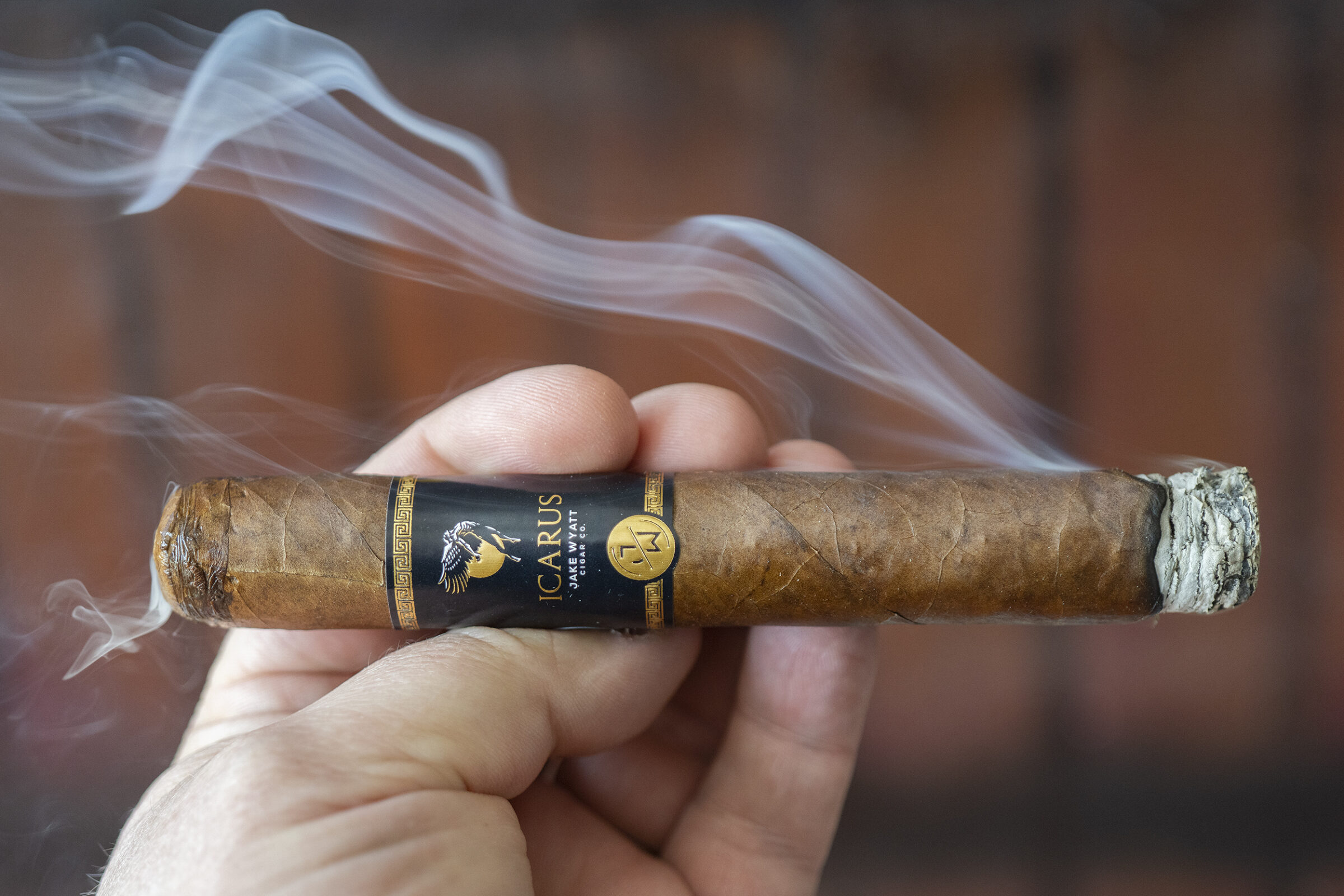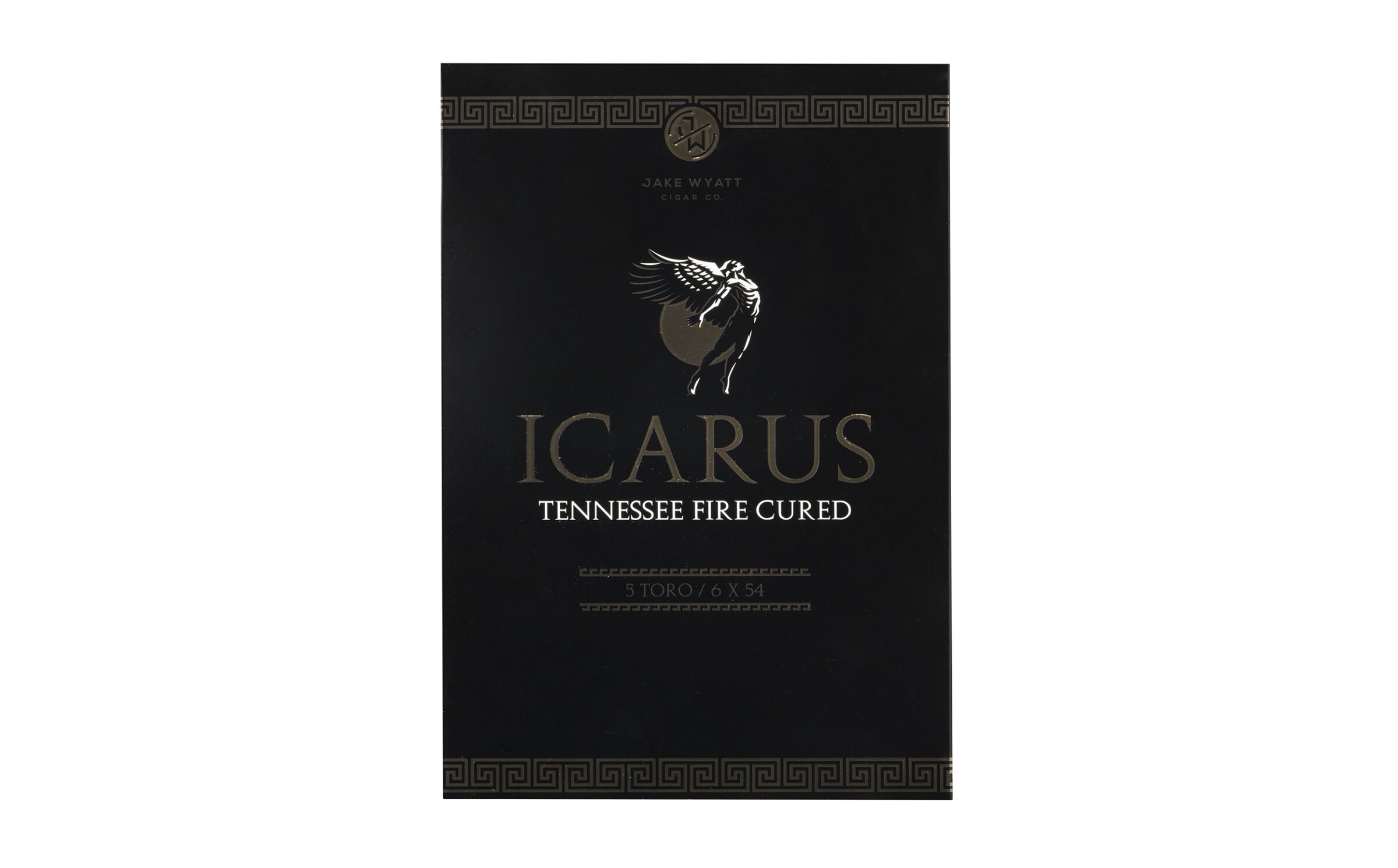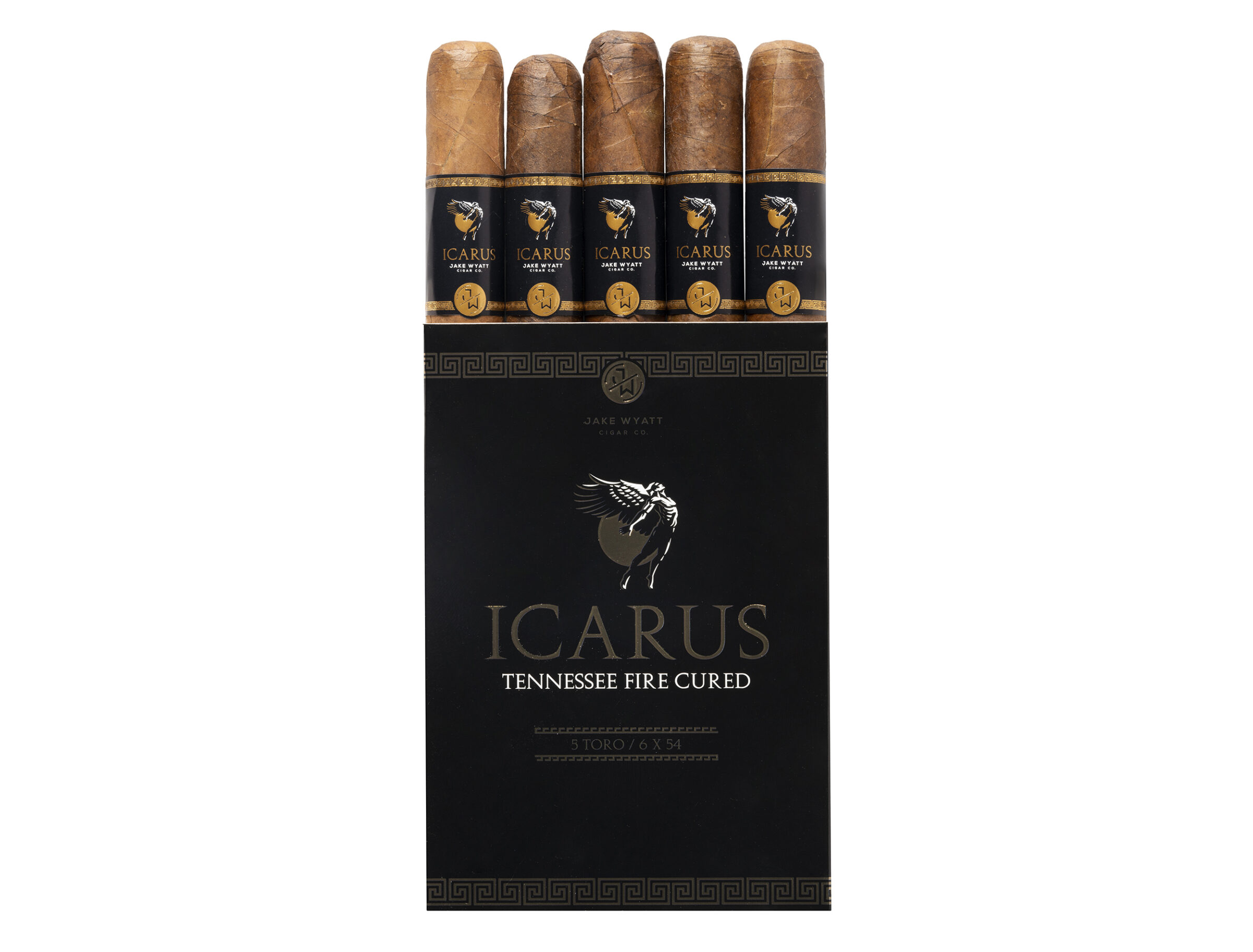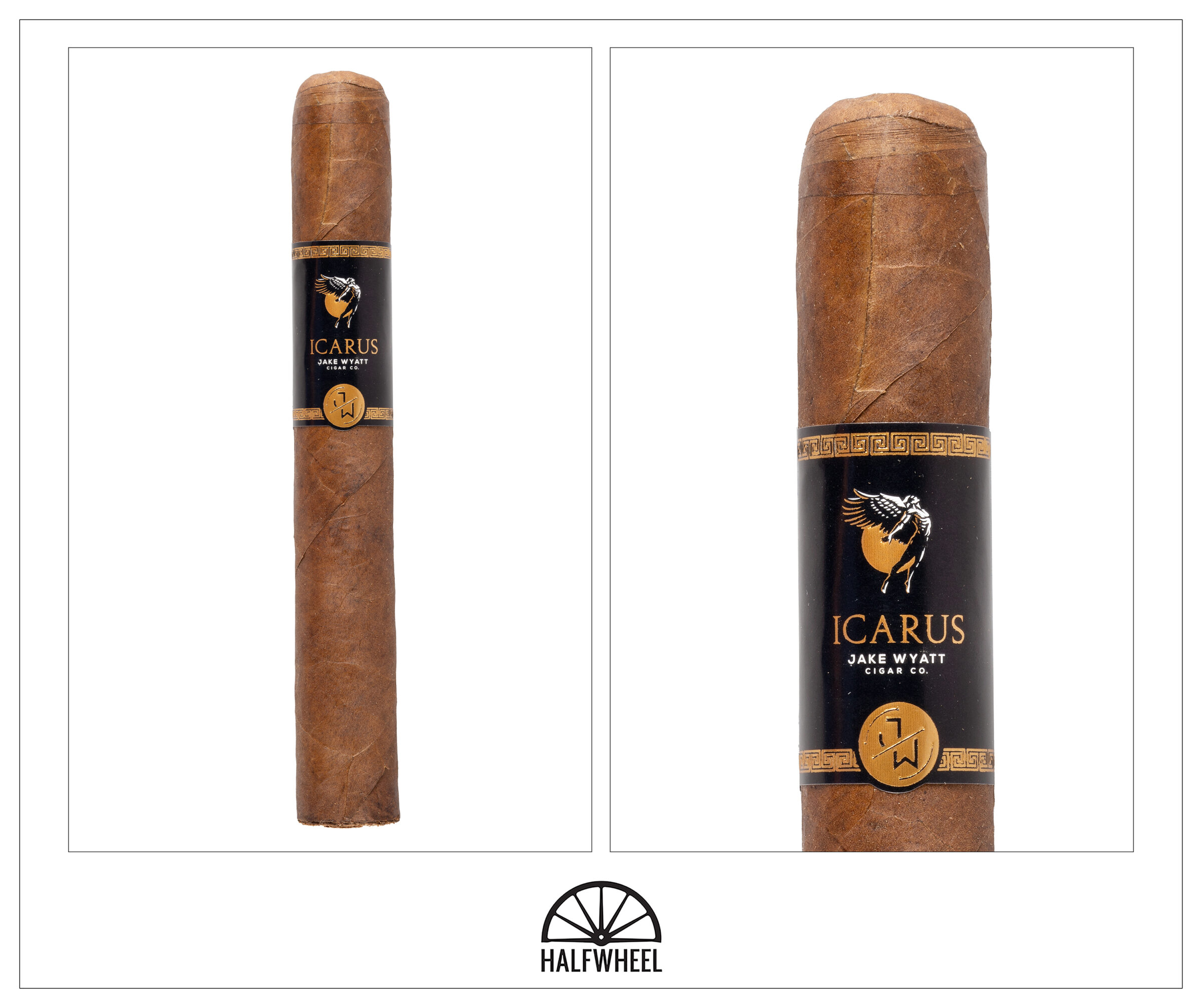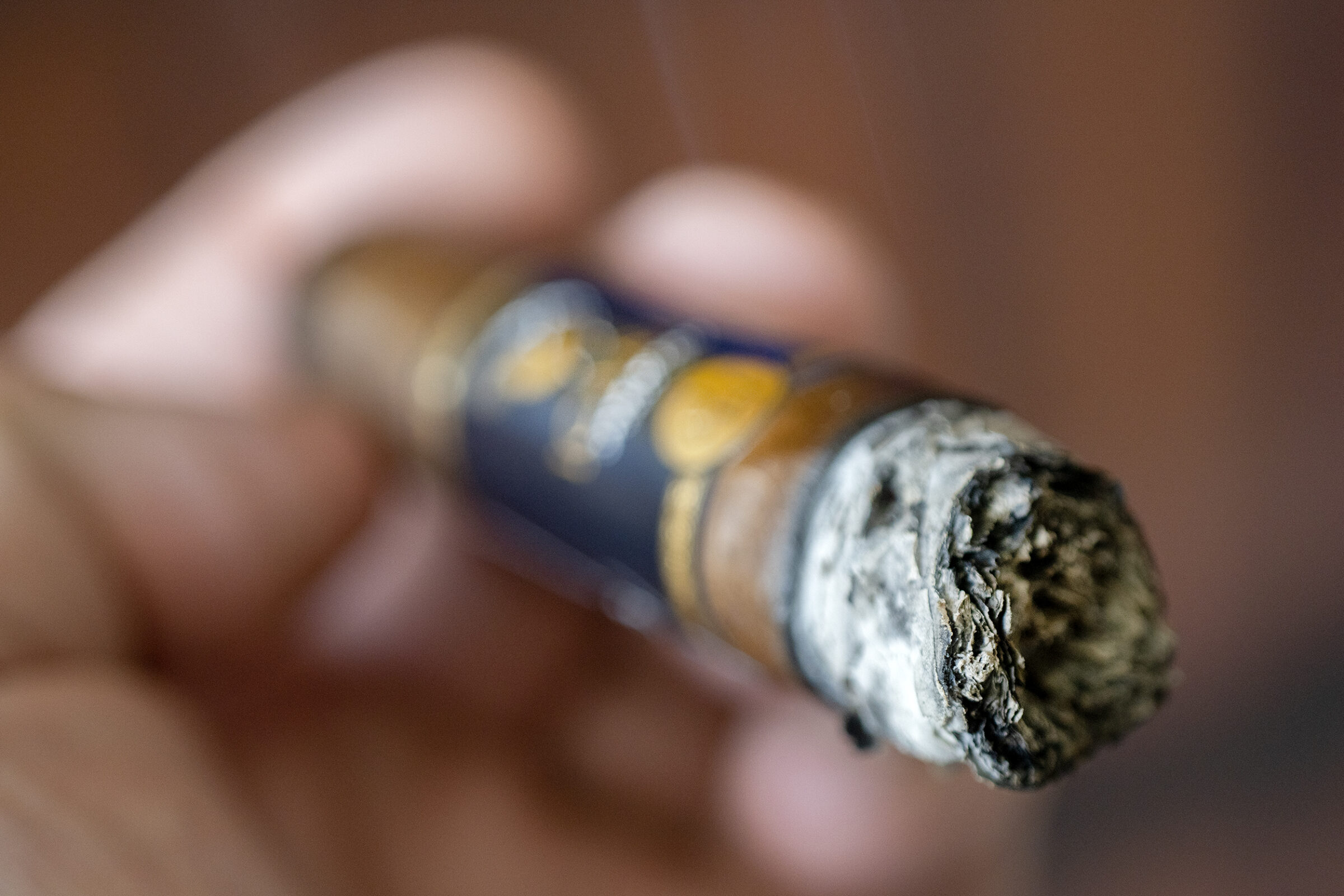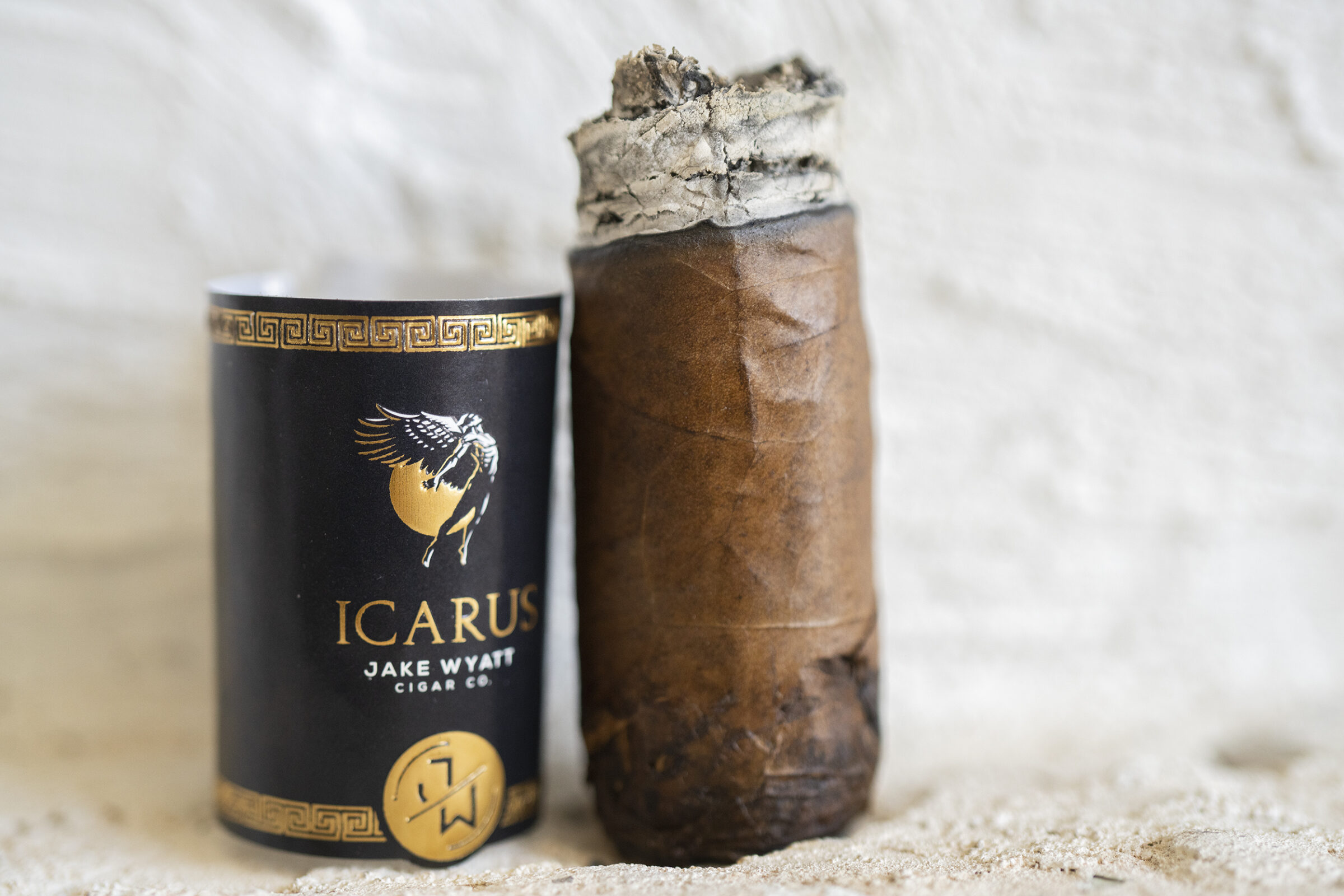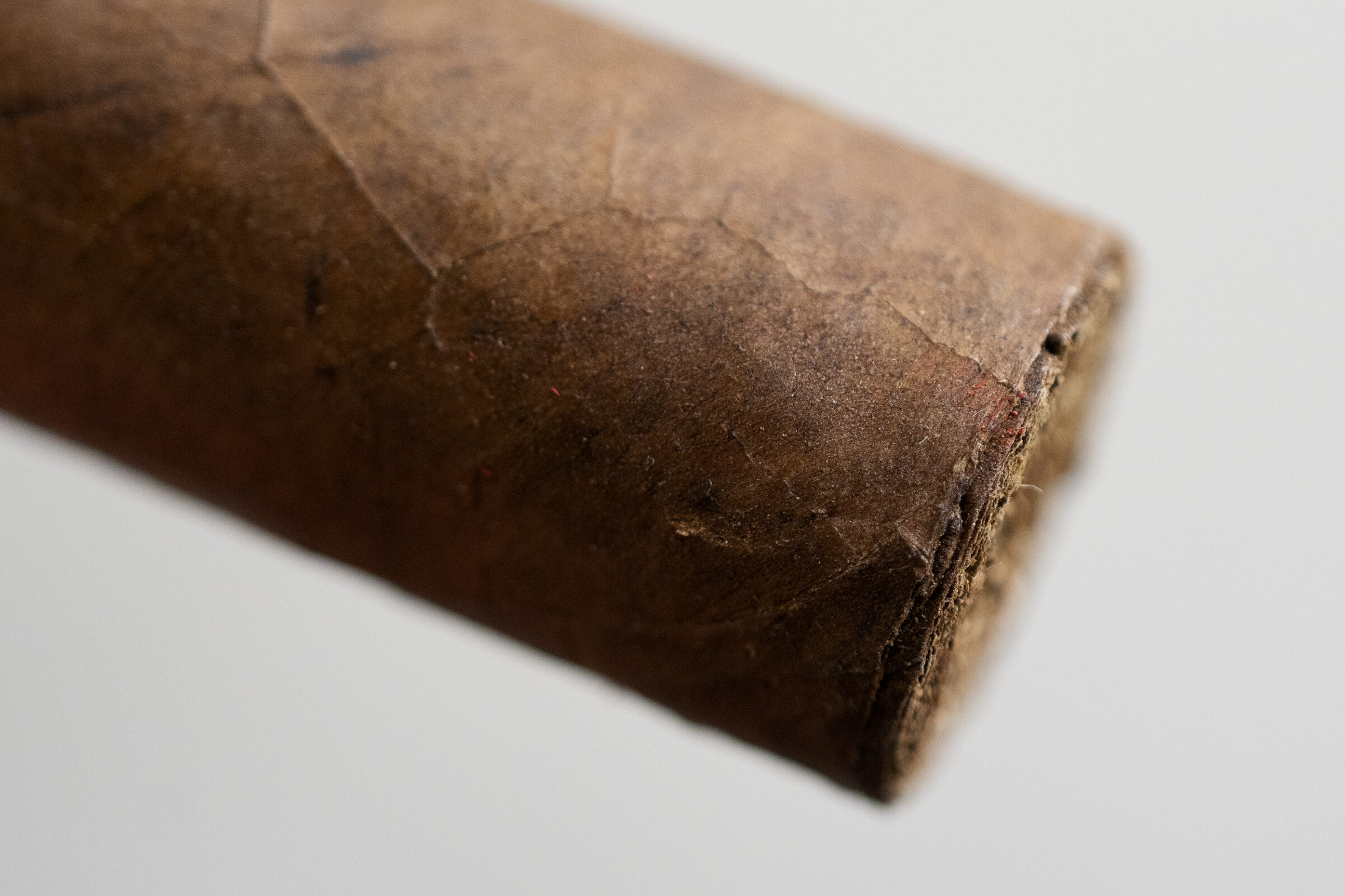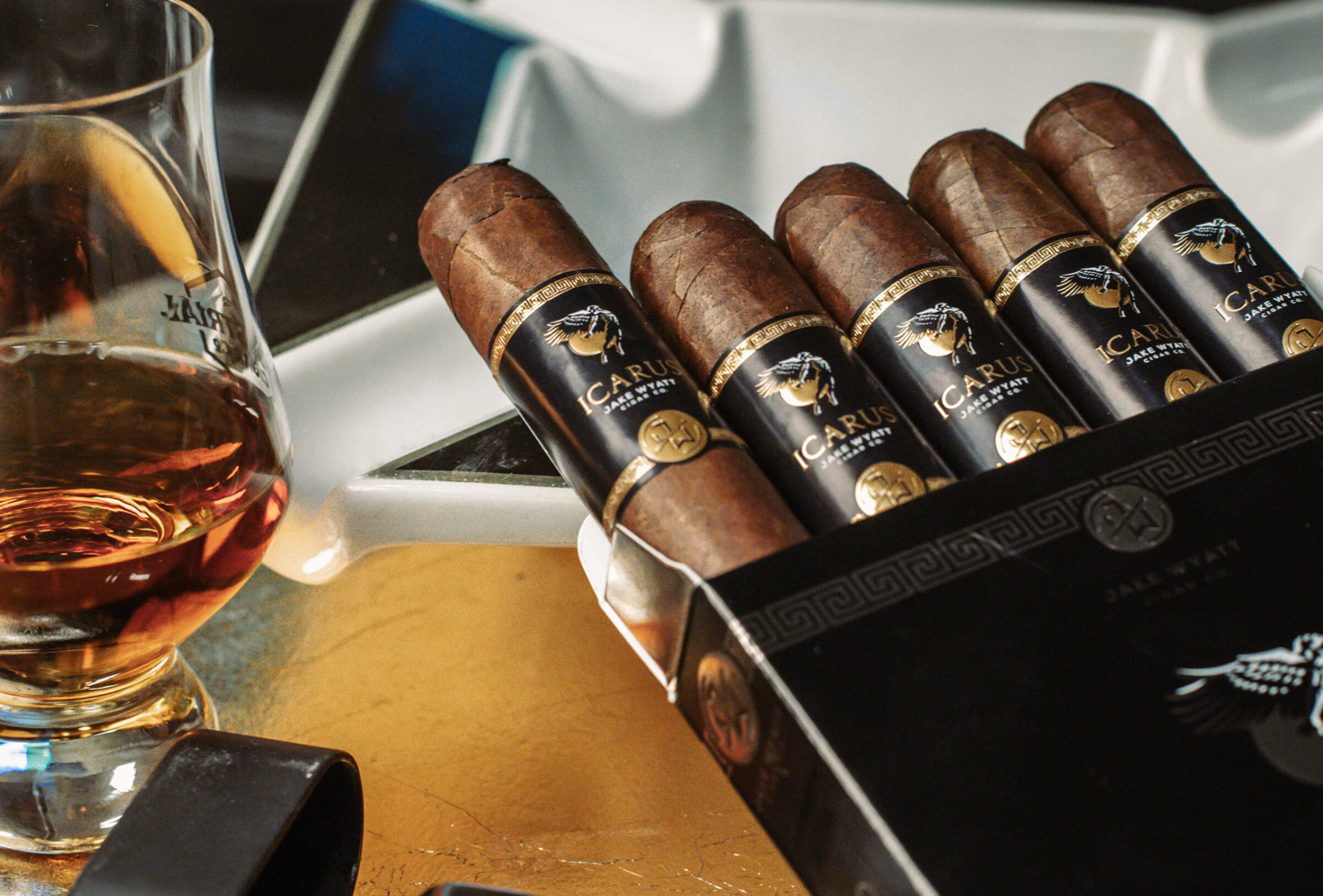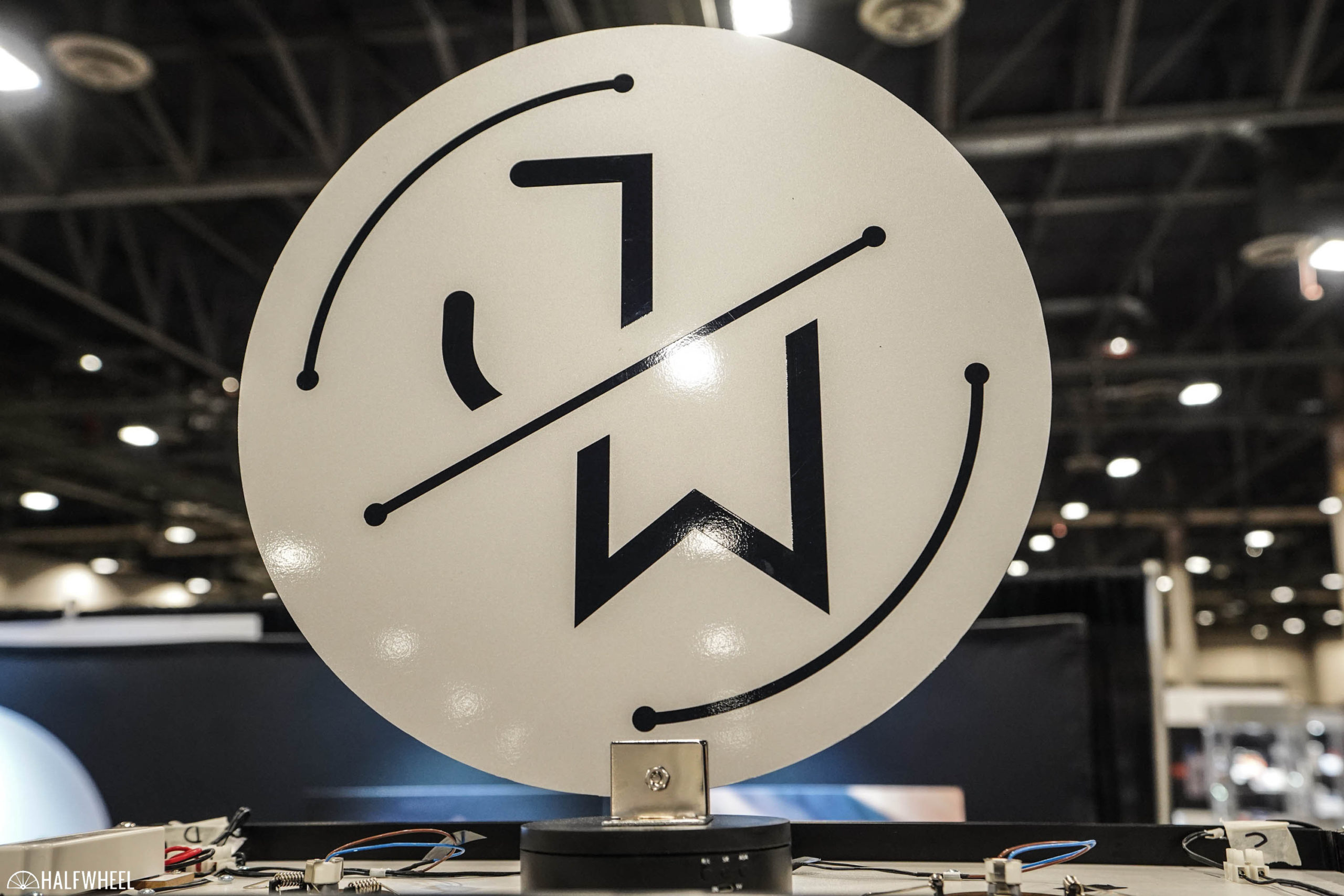During the 2024 Total Product Expo (TPE), Jake Wyatt Cigar Co. showed off a new release made with Tennessee fire-cured tobacco.
Icarus is a 6 x 54 toro extra that uses a Mexican San Andrés maduro wrapper covering a Dominican olor binder and fillers, including the aforementioned Tennessee fire-cured tobacco and Pennsylvania broadleaf along with Dominican criollo 98 and piloto cubano. Icarus is being rolled at Casamorabo Tabacalera S.R.L. in Santiago, Dominican Republic
The cigar is named after the character in Greek mythology who attempted to use wings made out of wax to fly to the heavens, only to have the sun’s heat melt the wings and send him into the Aegean Sea.
“Icarus, like tobacco leaves kissed by Tennessee fire, soared too close to the sun,” the company wrote in a press release. “Ambition met flames, a cautionary tale in every ember.”
It is sold in five-count packs priced at $59.99.
- Cigar Reviewed: Jake Wyatt Icarus
- Country of Origin: Dominican Republic
- Factory: Casamorabo Tabacalera S.R.L.
- Wrapper: Mexico (San Andrés)
- Binder: Dominican Republic (Olor)
- Filler: Dominican Republic (Criollo 98 & Piloto Cubano) and U.S.A. (Tennessee Fire-Cured & Pennsylvania Broadleaf)
- Length: 6 Inches
- Ring Gauge: 54
- Vitola: Toro Extra
- MSRP: $12 (Pack of Five, $59.99)
- Release Date: February 2024
- Number of Cigars Released: Regular Production
- Number of Cigars Smoked For Review: 3
From a visual perspective, each of the three Jake Wyatt Icarus cigars is quite similar: reddish brown-colored wrappers with significant mottling and at least two protruding veins. The wrappers have some oil present and are slick to the touch, and all three cigars are very firm when squeezed, but I noticed that my first cigar has a red substance on the foot. Aromas from the wrappers are not nearly as aggressive as I expected, with sweet earth, mesquite, leather tack, generic nuttiness and some very light campfire notes each vying for attention. That campfire note is quite a bit stronger when I bring the feet to my nose— two of the cigars also feature a strong and rich raisin sweetness—and that main note is followed by lighter scents of peppered meat, mesquite, dank earth and coffee beans. After punch cuts, the cold draws are very similar, with sweet mesquite and campfire leading gritty earth, dark chocolate, black pepper, creamy leather and distinct sweet mint leaves.
While the cigars start off with quite a bit of black pepper and generic woodiness, there is a somewhat surprising lack of spice anywhere in the profile, at least so far. Within five puffs, a combination of campfire and mesquite take over the top spots, easily outpacing secondary flavors that include a distinct anise note and plenty of charred meat but smaller amounts of leather, earth, lemon zest and chalk. The retrohales are very similar for all three cigars—a combination of red pepper and raisin sweetness—but my first and third cigars also feature some mineral saltiness that becomes noticeable on my lips. Flavor ends the first third at medium-full while the body hits a solid medium, and the strength reaches a point just over the medium mark. In terms of construction, all three cigars feature excellent draws along with plenty of dense, off-white smoke, and while the burn lines are not razor sharp at any point, they never come close to needing corrections of any sort.
Campfire and mesquite continue to dominate the profile of the cigars during the second third. All three cigars also feature mineral saltiness, dank earth, cocoa nibs, lemongrass and light peanut butter, but one cigar features more charred meat, while the other two have significantly more anise. The amount of red pepper present on the retrohale noticeably decreases for all three cigars, while the raisin sweetness increases just slightly. Flavor bumps up to full, while both the body and strength reach medium-plus. Unfortunately, all three cigars run into burn issues that necessitate two corrections each with my lighter—albeit at different locations—but the draws and smoke production continue to be problem-free.
Just after the final third begins, I notice that all three cigars have lost quite a bit of the campfire flavor that was so prevalent in the first and second thirds. In fact, while the campfire note is still noticeable, the main flavor combination is now made up of anise and leather tack, followed by secondary flavors of creamy earth, coffee beans, charred meat, lemongrass and sourdough bread. The red pepper is back on the retrohale for all three cigars—though a bit less so on the final cigar—while the raisin sweetness continues to be present. The flavor remains full until the end of the cigar, the strength increases to full, but the body stays at medium-full. After issues in the second third, all three aspects of construction are working in harmony for each cigar, with nary an issue when it comes to the burn lines, draws or smoke production.
Final Notes
- Jake Wyatt Cigar Co.’s name is taken from the names of the two co-owners’ sons.
- As mentioned above, my first cigar had an unknown orangish substance on its foot.
- Growing up, I was fascinated by Greek mythology and read everything I could on the subject for years.
- There have been quite a few different cigar releases named after characters in Greek mythology, including the La Musa Μελέτη, La Galera Anemoi Eurus, Protocol Themis, Curivari Achilles and the Guardian of the Farm Cerberus. In addition, the Prometheus brand is named after the Greek Titan who introduced fire to humankind.
- While some cigar companies seem to put QR codes on the inside of their bands, Jake Wyatt has placed a code right on the back of the outside of the main band. If you use a QR code reader to scan it, that code takes you to the Icarus product page on the company’s website.
- Construction on all three cigars was extremely consistent, including excellent draws and plenty of smoke. In addition, each of the cigars ran into enough burn issues to need two corrections with my lighter during the second third, albeit at different locations.
- The cigars are officially listed as 6 x 54 toro extras.
- The cigars smoked for this review were purchased by halfwheel.
- The final smoking time for all three cigars averaged out to two hours and seven minutes.
Fire-cured tobacco can be risky, if companies are not careful, the entire blend becomes a one-trick pony, overwhelmed by the aggressive campfire and mesquite flavors that tend to be hallmarks of tobacco using that curing process. Having said that, there are cigars that toe the line between worlds nicely, and the Jake Wyatt Icarus is one of them: while the signature fire-cured profile was noticeable throughout the first two-thirds, it was never the only flavor in the profile. The combination of mesquite and campfire disappears almost completely during the final third, leaving behind a profile dominated by anise and leather. If given a choice, I am still probably not going to choose a cigar with fire-cured tobacco over one without, but those looking for a change of pace blend that still has some traditional flavors in its profile should give this cigar a try.

